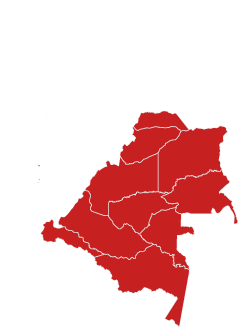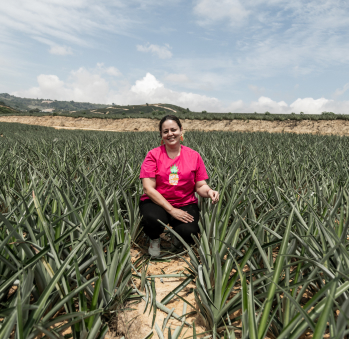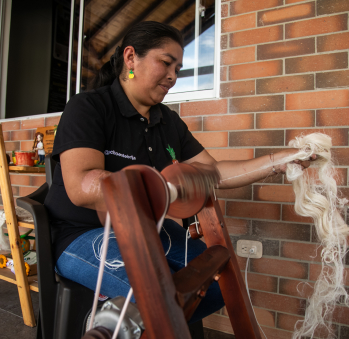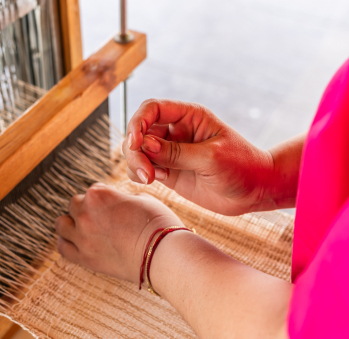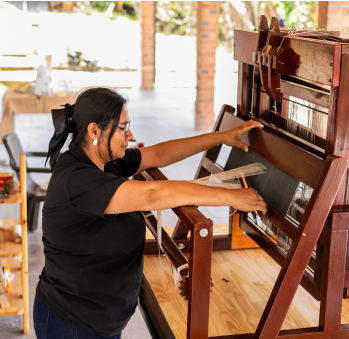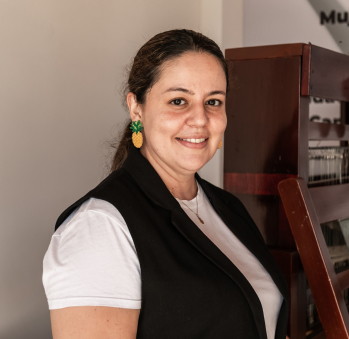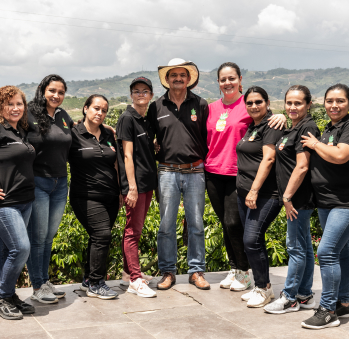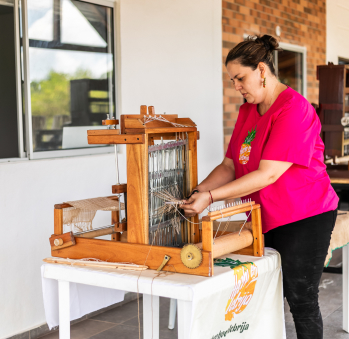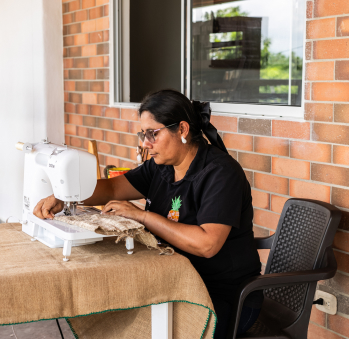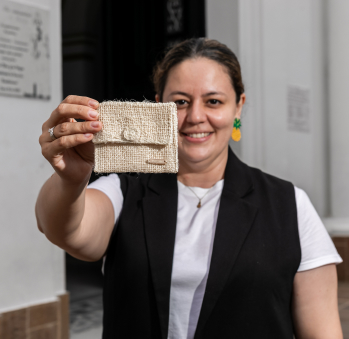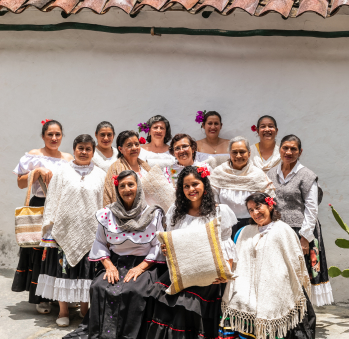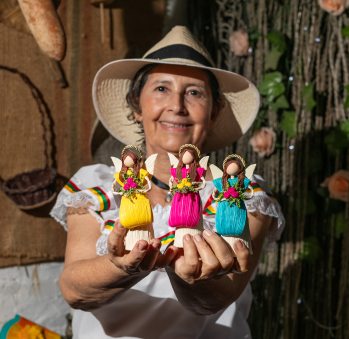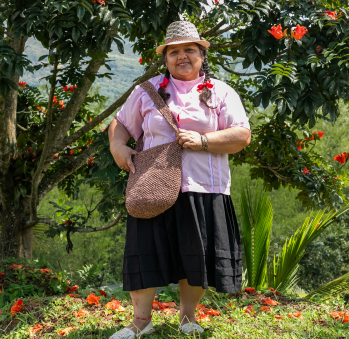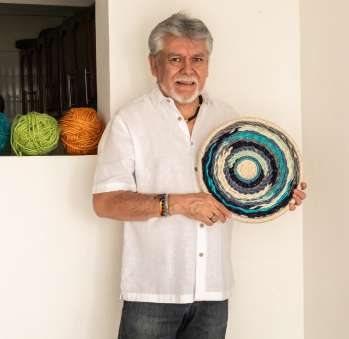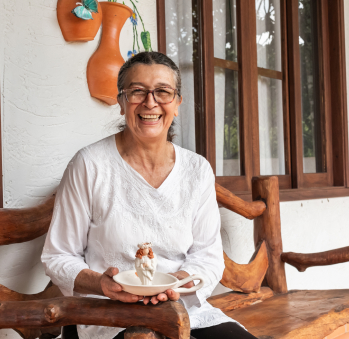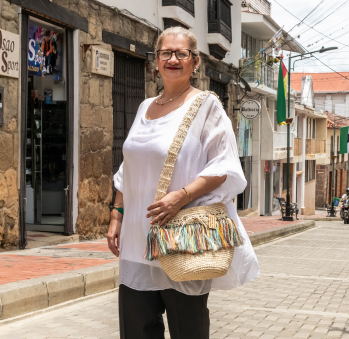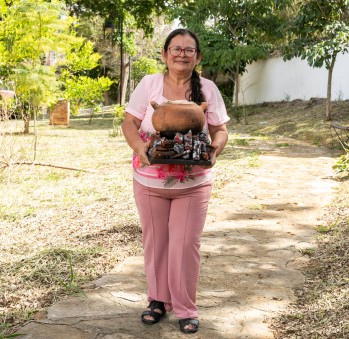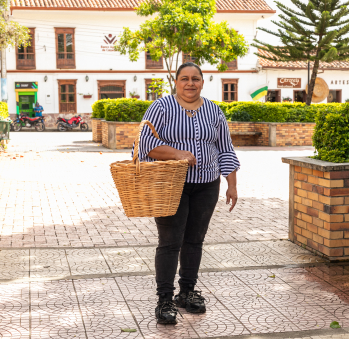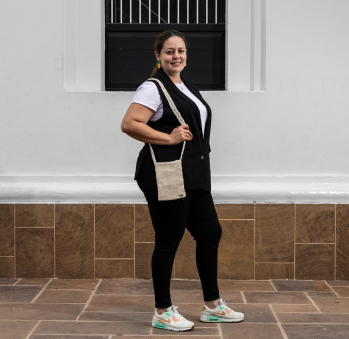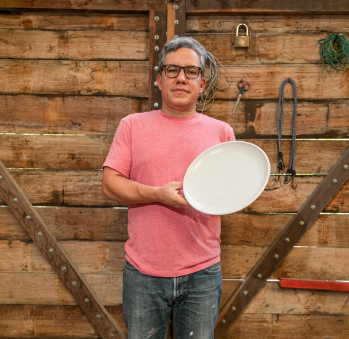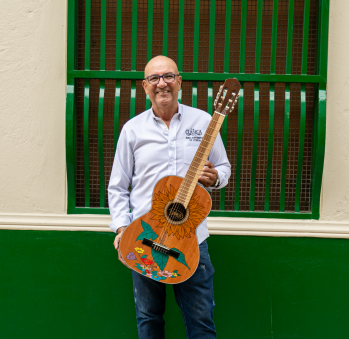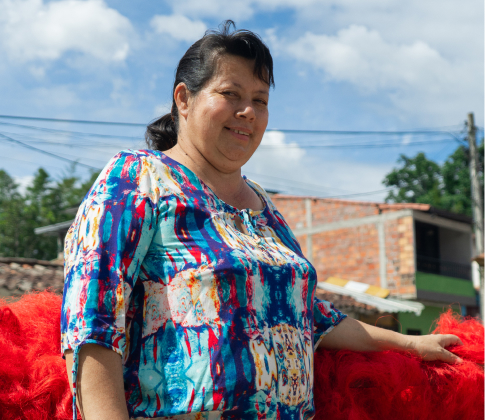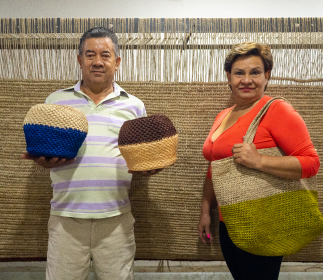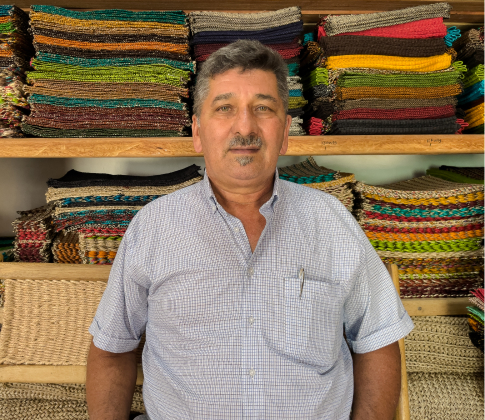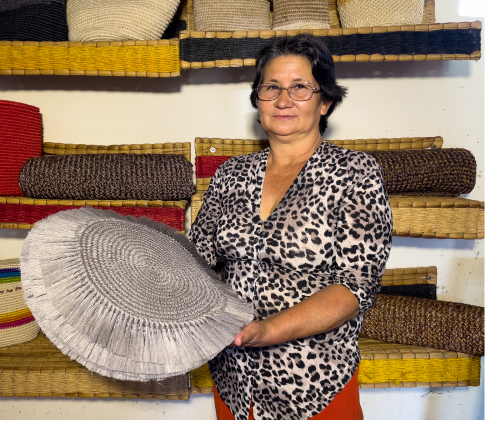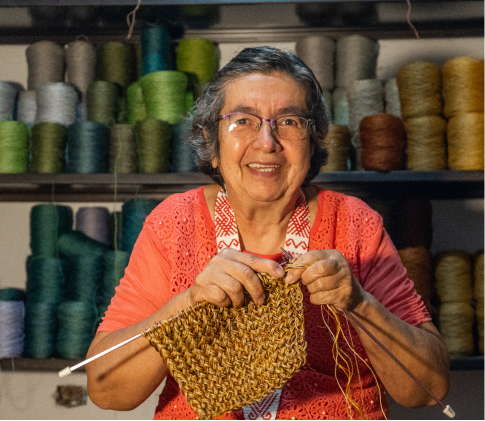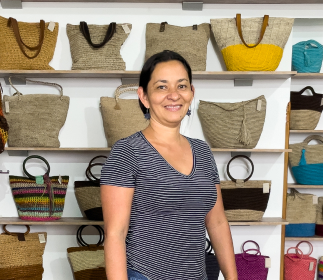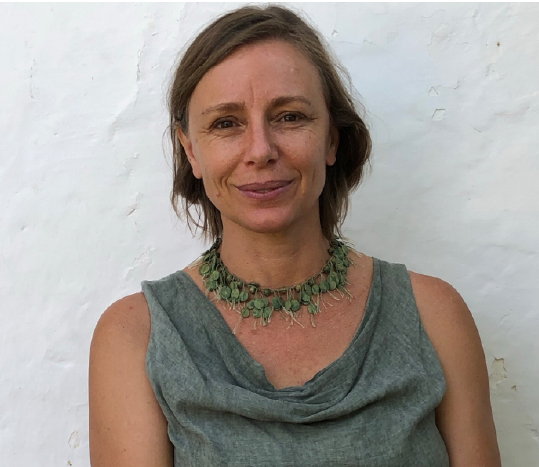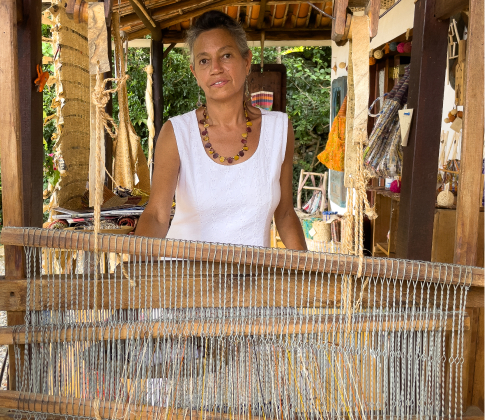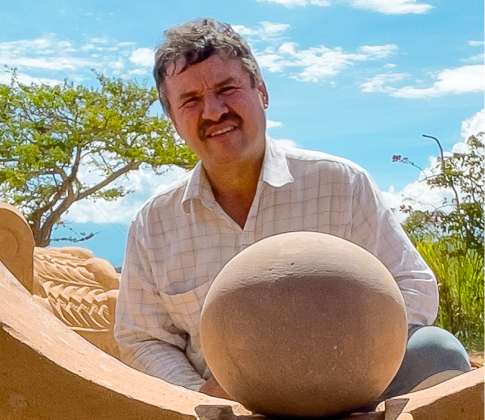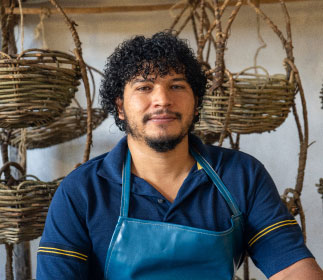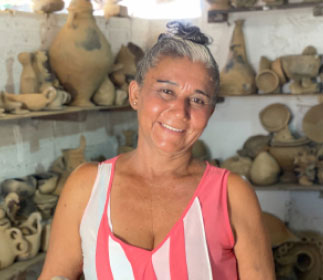Deicy Ardila
Workshop: Asociación de artesanas y agricultores Hecho en Lebrija
Craft: Weaving
Trail: Santander Route
Location: Lebrija, Santander
The pineapple fields thrive under the scorching sun of Lebrija. Here, Deicy and her group of artisans and farmers arrive after the sweet pineapples are harvested to reclaim the raw material for their threads—the leaves of the plants that are typically burned as waste. In the midst of the heat, they carefully strip the plants, ensuring not to strip them bare so as not to hinder the next harvest. Thus begins the long process of extracting their prized pineapple fibers, an innovative textile that has gained recognition in the Philippines.
After an exhaustive scraping process performed on a machine specially designed for this task, followed by combing, they produce a fiber with a silky sheen that resembles white horsehair. It’s strong and sturdy, much like the horses and fique, another essential fiber from Santander. While it can be easily dyed with achiote, bay leaves, onions, guava leaves, and turmeric, Deicy has chosen to showcase the splendor of its natural white.
To produce a single skein, around 60 pineapple leaves are needed, and there’s no better place to obtain millions of leaves than Lebrija. In the 1960s, they discovered that the climate and soil were perfect for growing this fruit, along with citrus fruits. They started by planting petrolera pineapples, and later the sweet oromiel variety became popular. They planted so many that by the early 2000s, supply outstripped demand, leading to a crisis. It’s estimated that now, after overcoming that crisis, there are 4,800 hectares under cultivation. Although producing threads from the plant’s waste seems like a tailor-made solution for the municipality, the work hasn’t been easy. Just as challenging as extracting the fiber from the pineapple has been keeping those who do the work united, as the fiber extraction process is more labor-intensive and currently less profitable than agriculture.
Deicy’s project began in 2019 when she moved from Bucaramanga to Lebrija and joined forces with women interested in artisan work to teach them about jewelry-making. For years, she had been nurturing the idea of working with plant waste to create biofuels or fibers. Then she learned that pineapple generates the most waste, and after consolidating her group with four women, she decided to give the local fruit fiber a chance. They experimented with everything, from scraping the leaves by hand with wooden spatulas to putting them through fique guillotines, eventually spinning them with a spindle. They ended up with a spinning wheel and spindle, trying to create finer threads, and even figured out how to build their own machine to eliminate the need for hand scraping. Since then, they have been looking for ways to soften the fiber by mixing it with cotton and hemp while also crocheting bags and wallets and weaving fabrics on horizontal looms with this material worthy of the resilience of Santander’s women.
Craft
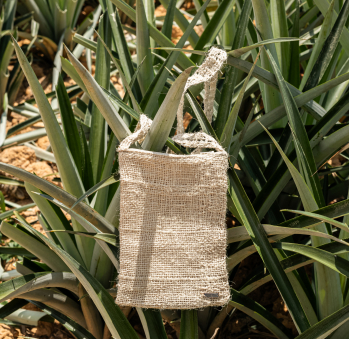
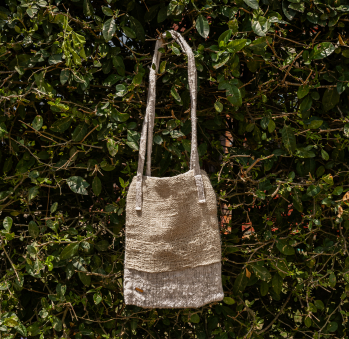
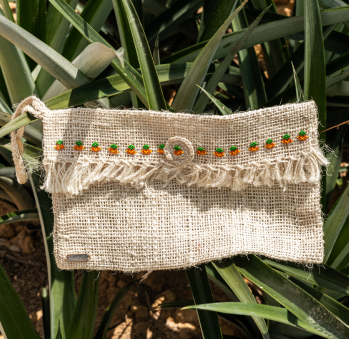
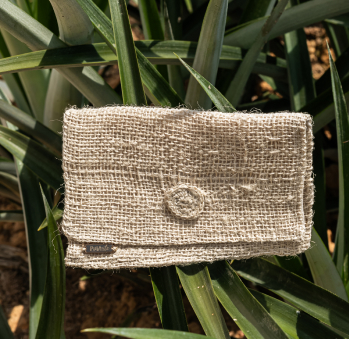
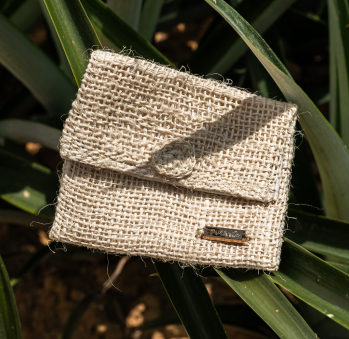
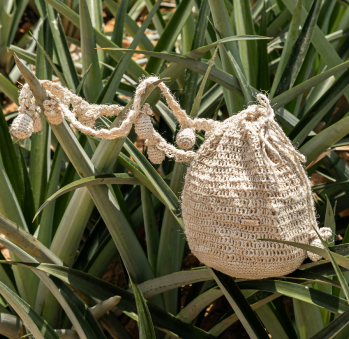
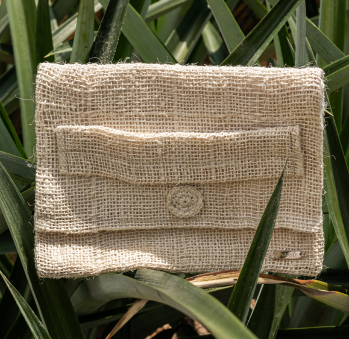







Artisans along the way
Artisans along the way
No puede copiar contenido de esta página

